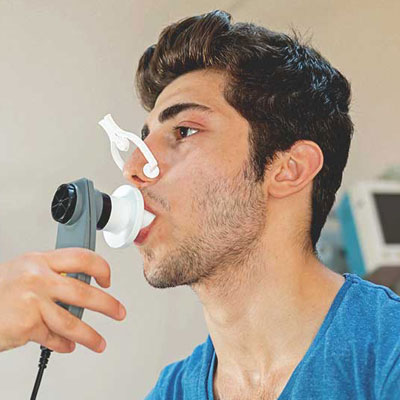Pulmonary function tests (PFTs) are a group of tests that measure how well your lungs work. This includes how well you’re able to breathe and how effective your lungs are able to bring oxygen to the rest of your body. Your doctor may order these tests:
- 1. if you're having symptoms of lung problems
- 2. if you’re regularly exposed to certain substances in the environment or workplace
- 3. to monitor the course of chronic lung disease, such as asthma or chronic obstructive pulmonary disease (COPD)
- 4. to assess how well your lungs are working before you have surgery
Your PFTs may include spirometry, which measures the amount of air you breathe in and out. For this test, you’ll sit in front of a machine and be fitted with a mouthpiece. It’s important that the mouthpiece fits snugly so that all the air you breathe goes into the machine. You’ll also wear a nose clip to keep you from breathing air out through your nose. The respiratory technologist will explain how to breathe for the test. You may then breathe normally. Your doctor will ask you to breathe in and out as deeply or as quickly as you can for several seconds. They may also ask you to breathe in a medication that opens your airways. You’ll then breathe into the machine again to see if the medication affected your lung function. PFTs are usually safe for most people.

